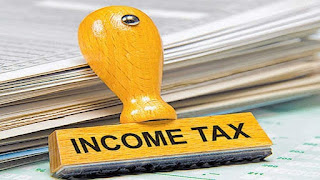Know how you can save tax on interest income of up to ₹17,000 in a year
If you are filing your tax return, don’t forget to claim these deductions and exemptions to save tax on interest income.
Most of you would know that you can claim a deduction of up to ₹10,000 on the interest earned on a savings bank account under Section 80TTA of the Income Tax Act. This is the interest earned on a savings account with a commercial bank or co-operative bank or a post office.
However, do you know that you can claim an additional exemption on the interest earned on a post office savings account up to ₹3,500 in a financial year? In case of a joint account, interest income up to ₹7,000 is tax exempt. So, if you have opened a joint savings account with your wife in the post office, both of you can claim tax exemption of ₹3,500 separately. So, in total you can save tax on interest income of up to ₹10,000 from a savings bank account and up to ₹7,000 from a post office savings joint account.
It comes under section 10(15) of the Income Tax Act. Section 10 (15) talks about the exempted incomes which are not supposed to be part of the total income of an individual.
"On interest income from post office savings accounts, you can claim a deduction of up to ₹10,000 under Section 80TTA while interest up to ₹3,500 is also tax exempted under Section 10 (15). However, the same amount can't be claimed twice at the same time," said Prakash Hegde, a Bengaluru-based chartered accountant.
But, if you have an interest income of ₹10,000 from a post office savings account, you can claim ₹3,500 under exempted income while remaining ₹6,500 can be claimed as deduction under Section 80TTA.
Also, how you will show the interest income in the income tax return (ITR) will depend on whether you are claiming it as a tax deduction or a tax exemption. “In case you are claiming it as a tax deduction under Section 80TTA, you will have to show the interest income under the head Income from other sources. While if you are claiming a tax exemption you can show the same under the head Exempted Income,"said Tarun Kumar, a Delhi-based chartered accountant.
However, from this year, it is likely that you will get all this information pre-filled in your tax forms as institutions such as banks, post offices, etc are required to send the details of the interest earned by the individuals to the tax department.
Source:https://www.timesnownews.com/business-economy/personal-finance/income-tax/article/legal-heir-responsible-to-file-income-tax-return-itr-of-deceased-heres-how-to-do-it/782214
Download our App to get knowledge updates::: https://play.google.com/store/apps/details?id=com.app.gstmitra
Join Our Telegram Channel for more updates:https://t.me/praveengst



Comments
Post a Comment